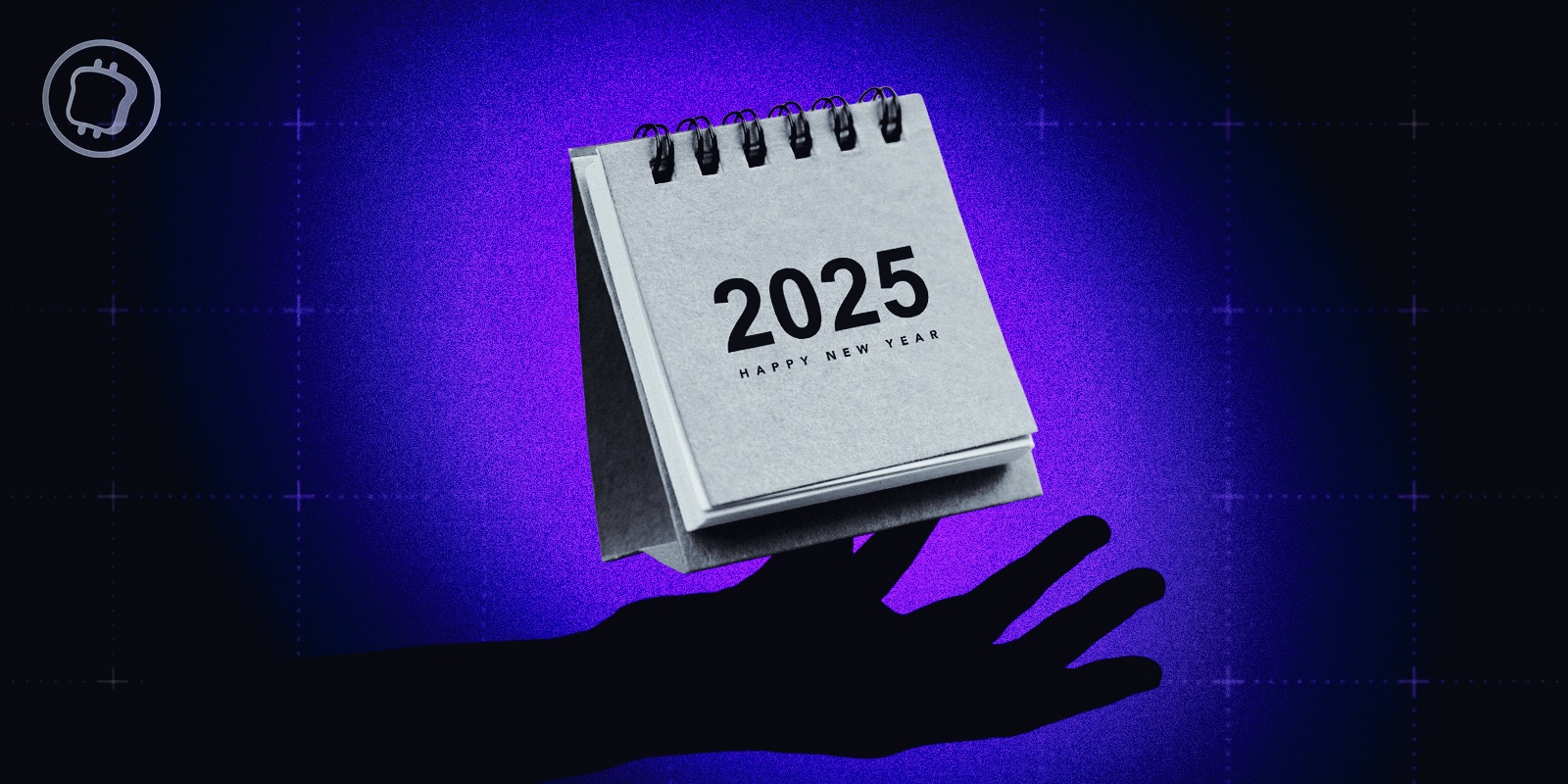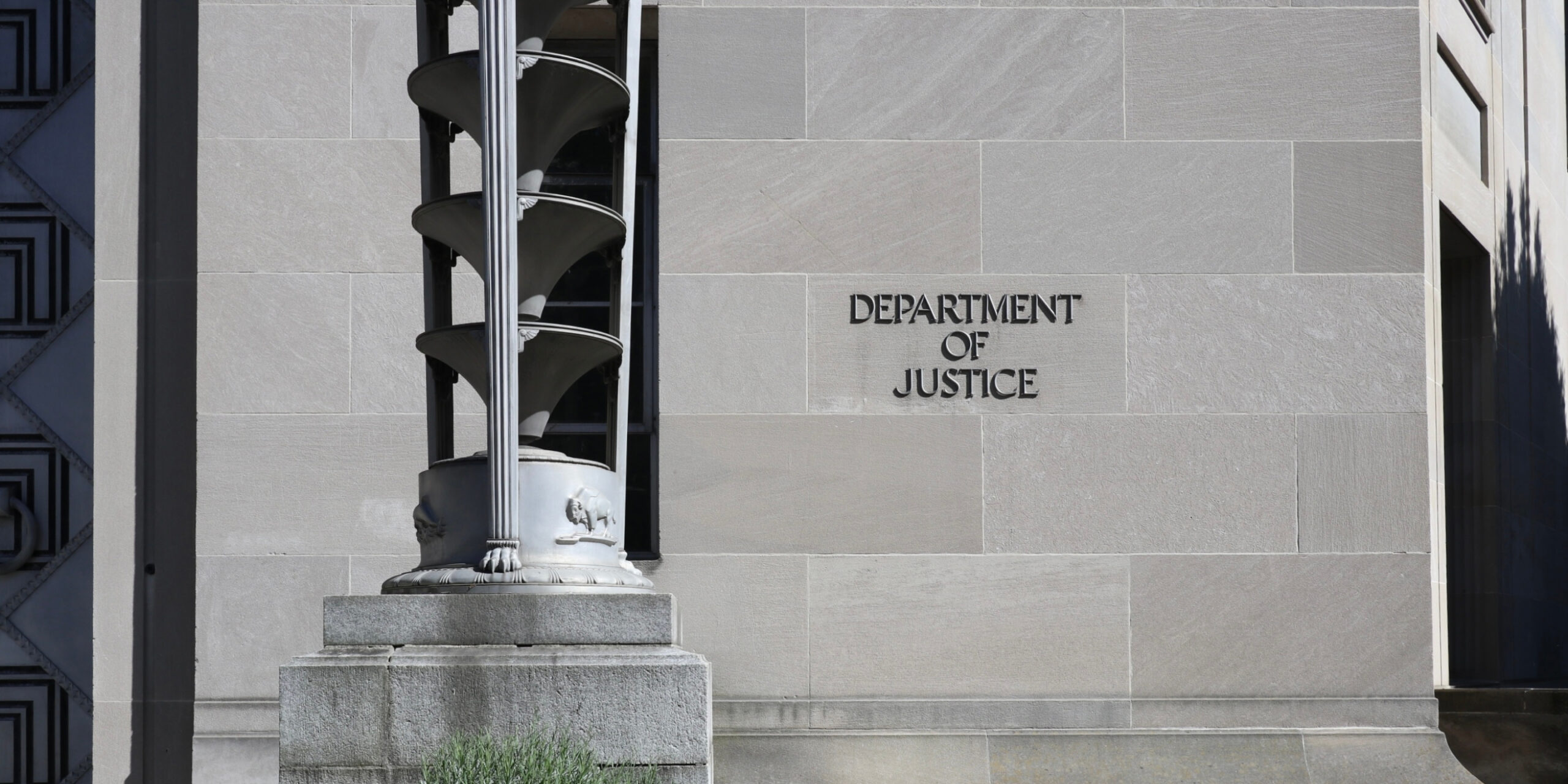Strategic investments, regulatory upheavals, and technological advances… In 2025, the crypto ecosystem finds itself at a decisive turning point. What events will mark this promising year? Discover the major issues and opportunities that could redefine the future of blockchain.
A promising year 2025 for the crypto ecosystem
While price fluctuations in the crypto market since the start of 2025 are putting investors' nerves to the test, we will take a look at the key events that will shape the crypto landscape this year.
And although the year 2024 will have been exceptional in many respects for the crypto ecosystem, whether with the launch of spot Bitcoin ETFs in the United States, the symbolic milestone of $100,000 exceeded on the price of BTC, the 4th Halving of Bitcoin or even cryptocurrency becoming a real issue in the American presidential campaign, this year promises to be just as eventful.
Let's find out which ones and how they could shake up the crypto landscape in 2025 and for years to come.
Don't miss the bullrun, join our experts on Cryptoast Academy
Advertisement
The inauguration of Donald Trump as President of the United States
While the crypto industry has been suffering for many years from an American policy openly opposed to its development, eyes are currently focused on the future with an anticipation of more lenient times.
Indeed, January 20 is a doubly crucial date for the crypto ecosystem. This fateful day will see the inauguration of Donald Trump but also the departure of Gary Gensler, current chairman of the Securities and Exchange Commission (SEC).
💰 Find out how to buy Bitcoin safely
As Gary Gensler prepares to leave office in the coming days, he has once again recently communicated his disdain for the cryptocurrency industry, recalling his vehemently opposed position to this sector.
Gary Gensler will be replaced by Paul Atkins, who unlike his predecessor, will be favorable to the development of the crypto industry, according to Donald Trump.
A pro-crypto government in the United States
Donald Trump repeatedly insisted during his campaign that he wanted to make the United States a “ global hub for the cryptocurrency industry “.
And although electoral promises are sometimes complicated to put into practice, there is no doubt that the policy pursued by Donald Trump and his government will be, if not pro-crypto, less repressive towards the development of its ecosystem.
Indeed, Donald Trump publicly supports the WLFI project, a decentralized finance (DeFi) protocol co-founded by 2 of his sons. Donald Trump has also, on several occasions, raised funds for his personal finances by marketing collections of NFTs and other derivative products like Bitcoin.
Open an account on Binance, the world’s #1 crypto platform
The controversial strategic Bitcoin reserve in the United States
If there is a subject that is debated, and this even within the crypto community, it is the potential arrival of a strategic reserve of Bitcoins in the United States.
This project is led by Cynthia Lummis, a pro-Bitcoin Republican senator, who proposed a law called “ Bitcoin Act ”, which stipulates that the United States will acquire 1 million BTC over a period of 5 years.
Although this project is encouraging for an appreciation of the price of Bitcoin, in particular through the adoption of other countries which would also like to constitute a strategic reserve, it is largely controversial among “Bitcoin maximalists”.
Indeed, the latter fear a certain immobilization and centralization of the Bitcoin supplywhich distorts his initial proposition of “ peer to peer cash electronic system » and could even harm the income of minors.
In addition, the current government under the aegis of Joe Biden recently announced that it would authorize the sale of Bitcoins seized during the Silk Road legal proceedings and the Bitfinex hack, which could undermine the plans of Donald Trump's government.
Ledger: the best solution to protect your cryptocurrencies 🔒
The Pectra update for the Ethereum blockchain
Although no date has yet been confirmed, the Pectra update should be applied in the first quarter of 2025.
While Ethereum's latest update, Dencun with EIP-4844, allowed the blockchain to offer its users significantly lower fees, the Pectra update with EIP-3074 is expected to enable several improvements to encourage mass adoption.
Indeed, EIP-3074 must, among other things, allow account abstraction, a process limiting friction between blockchain technology and the user.
🏦 How to buy ETH easily?
Towards new ETFs accepted in 2025?
While spot Bitcoin ETFs experienced great success following their launch with nearly $108 billion invested via this investment vehicle, spot Ethereum ETFs for their part experienced more mixed success with “only” nearly 12 billions invested.
However, other files concerning potential ETFs based on the cryptocurrencies of Solana and Ripple are currently being studied by the Securities and Exchange Commission (SEC) of the United States.
Although Ripple's XRP-backed ETFs do not yet have a known deadline for a verdict, the Solana cases are expected to come to an end soon:
- Grayscale: decision expected January 23;
- Other candidates: preliminary decisions expected January 25.
Thus, in the days to come, the SEC's decision could well act as “case law” and guide the choices of ETF managers to file new requests concerning other cryptocurrencies or not.
In the event of a green light from the regulator, it will be interesting to observe capital inflows into these investment vehicles as well as the impact on the price of the SOL cryptocurrency.
Trade Republic: Buy Cryptos and Stocks in 5 Minutes
Increased monitoring with the DAC8 standard
While the MiCA regulations came into full force on January 1, 2025, new standards accompanying the latter are already in the pipeline.
Passed by a majority in September in the European Parliament, the DAC8 standard will allow tax authorities to monitor and obtain information on all cryptocurrency transactions conducted by clients of PSAN companies within the European Union.
This obligation concerns all transactions, whether carried out by individuals or professionals. The information collected will then be automatically exchanged between the tax administrations of the Member States, in order to “strengthen tax transparency and the fight against fraud”.
Crypto companies therefore have until December 31, 2025 to comply with this new regulation, which will come into force on January 1, 2026.
✍️ How will MiCA shake up the European crypto ecosystem?
The ECB's verdict on the digital euro
In 2025, the European Central Bank (ECB) must deliver its verdict on its experiments and the development of the digital euro, a central bank digital currency (CBNC).
Although this digital euro is based on blockchain technology, it differs in several points from traditional cryptocurrencies.
Indeed, the digital euro will be issued and guaranteed by the ECB, which therefore makes it by definition a centralized currency. Additionally, legitimate questions remain about the privacy and security of such a system.
Although the first declarations from the ECB around a potential digital euro are expected in 2025, the latter will only be deployed, if the project continues, around 2027-2028.
Create an account on Gemini: the American exchange launching in France
Refunds from FTX and Mt.Gox
Customers of FTX and Mt.Gox, 2 cryptocurrency exchange platforms infamous for having gone bankrupt, should finally be able to recover part of their funds.
For FTX clients, repayments began on January 3 and will be spread over 60 days for creditors whose amount does not exceed $50,000.
On the other hand, reimbursements for Mt.Gox customers, which began in July, will extend until October.
Although these reimbursements could have a significant impact on the crypto market, analysts are generally optimistic: Mt.Gox clients who are reimbursed in Bitcoin are adopting a holding strategy, while FTX clients who are reimbursed in fiat currencies could choose to reinvest their recovered funds and thus benefit from a favorable time frame for the appreciation of the price of cryptocurrencies.
👉 What are the 10 best crypto platforms in 2025?
The city of Detroit will accept taxes in cryptocurrencies
By mid-2025, the city of Detroit, United States, will accept cryptocurrency payments for taxes. This system will be implemented through a platform managed by PayPal, which currently supports cryptocurrencies such as BTC, Ether, Bitcoin Cash (BCH), Litecoin (LTC) and its stablecoin, PYUSD.
This approach is part of a dynamic similar to several American cities and states which also accept crypto payments for certain services.
Beyond the simple appreciation of the price of cryptocurrencies, these initiatives demonstrate a desire on the part of American regulators to participate in the democratization of cryptocurrencies.
It will be interesting to observe if more and more states/cities adopt a similar posture in the coming months, particularly in a government under the aegis of Donald Trump.
Aevo: trading cryptos not yet released on the market
The #1 Crypto Newsletter 🍞
Receive a summary of crypto news every day by email 👌
Some links in this article may be affiliated. This means that if you buy a product or register on a site from this article, our partner pays us a commission.
Investments in cryptocurrencies are risky. There is no guaranteed high return, a product with high return potential involves high risk. This risk-taking must be in line with your project, your investment horizon and your capacity to lose part of this savings. Do not invest if you are not prepared to lose all or part of your capital








